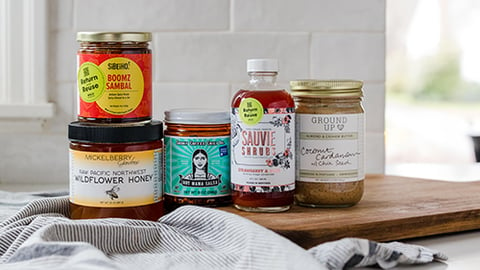Walmart's Omnichannel Fulfillment Network Undergoes Eco-Friendly Transformation
With its 27% e-commerce growth in first quarter, Walmart Inc. is continuing to invest in the right omnichannel capabilities to accommodate customers' changing needs but also to grow its business and fulfillment network in a more sustainable way. During the company’s Annual Shareholders' Meeting this week, the retail giant revealed its adoption of new measures designed to reduce the amount of packaging waste associated with online orders. This includes moving from plastic to recyclable paper mailers, right-sizing cardboard box packaging, giving customers the option to consolidate shipping on e-commerce orders, opting out of single-use plastic bags for online pickup orders and last-mile delivery efficiencies to reduce mileage and delivery times.
Omnichannel Waste Reduction Efforts
Moving forward, nearly all orders shipped in plastic mailers from fulfillment centers, stores and marketplace items shipped with Walmart Fulfillment Services, will arrive in recyclable paper bag mailers. This transition is expected to eliminate 65 million plastic bag mailers or more than 2,000 tons of plastic from circulation in the United States by the end of the current fiscal year.
Walmart is also utilizing applied artificial intelligence (AI) to identify when an item purchased online can be fulfilled from stores instead of fulfillment centers. This reduces both the number of miles driven and the number of boxes used for shipping. To ensure that items can more sustainably travel from stores to customers’ homes, the retailer combines multiple orders on single delivery routes and delivers them using electric vans. By leaning on its 4,700 stores as fulfillment centers, Walmart activates its end-to-end network to speed up delivery times for customers and reduce fleet miles and emissions, in line with the retailer’s commitment to achieve zero emissions by 2040.
“With a Walmart store located within 10 miles of 90% of the U.S. population, we can make a meaningful difference for our customers by strategically using our stores and last mile delivery network to reduce waste and emissions,” said Jennifer McKeehan, SVP of end-to-end delivery at Walmart U.S. “I’m proud of the efforts we’ve made and will continue to make as we keep regeneration at the forefront of delivery.”
To reduce the amount of cardboard used to ship products to customers, Walmart is transitioning to right-sized packaging technology in approximately half of its fulfillment network. This technology helps create a package custom fitted to the customer’s order. By eliminating unused space in the box, this technology reduces the need for filler by 60% while reducing waste caused by oversized boxes by as much as 26%.
All Walmart customers shopping online can now also request consolidation of multiple items into fewer boxes, reducing waste as well as the number of shipments.
For online pickup orders, Walmart customers nationwide will soon have the choice to opt out of single-use plastic bags. They can choose to bring their own bag, allowing the pickers to place groceries in the reusable bags in the customer’s car.
Competing With E-Comm Behemoth
Using electric delivery vans and reducing packaging waste are measures that put Walmart into direct competition with Amazon's sustainability efforts.
Amazon has been upping its efforts to make delivery more sustainable for the past two years. The company reported that it reduced average plastic packaging weight per shipment by more than 7% in 2021. It has also incorporated the use of machine learning to right-size packaging, minimizing the amount of paper used for each package, and continues to investigate ways to replace plastics with “existing material options” that are more readily recyclable.
In November 2021, Amazon also launched a curbside recyclable package that keeps grocery items from Amazon Fresh and Whole Foods Market stores frozen or chilled during delivery. That package uses recycled paper, eliminating the need for plastic liners or bubble-bag insulation.
While two of the biggest omnichannel retailer players compete to create a more sustainable fulfilment network, Walmart indicates its recent efforts are part of the company’s commitment to becoming a more regenerative company, which means prioritizing social and environmental issues that are relevant to its business, important to its stakeholders and issues where Walmart can make a positive difference.
Each week, approximately 240 million customers and members visit Walmart’s more than 10,500 stores and numerous e-commerce websites in 20 countries. The Bentonville, Ark.-based company employs approximately 2.1 million associates worldwide. Walmart U.S. is No. 1 on Progressive Grocer’s 2023 list of the top food and consumables retailers in North America. Seattle-based Amazon is No. 2 on The PG 100, Progressive Grocer’s 2023 list of the top food and consumables retailers in North America. PG also named both companies as its Retailers of the Century.







